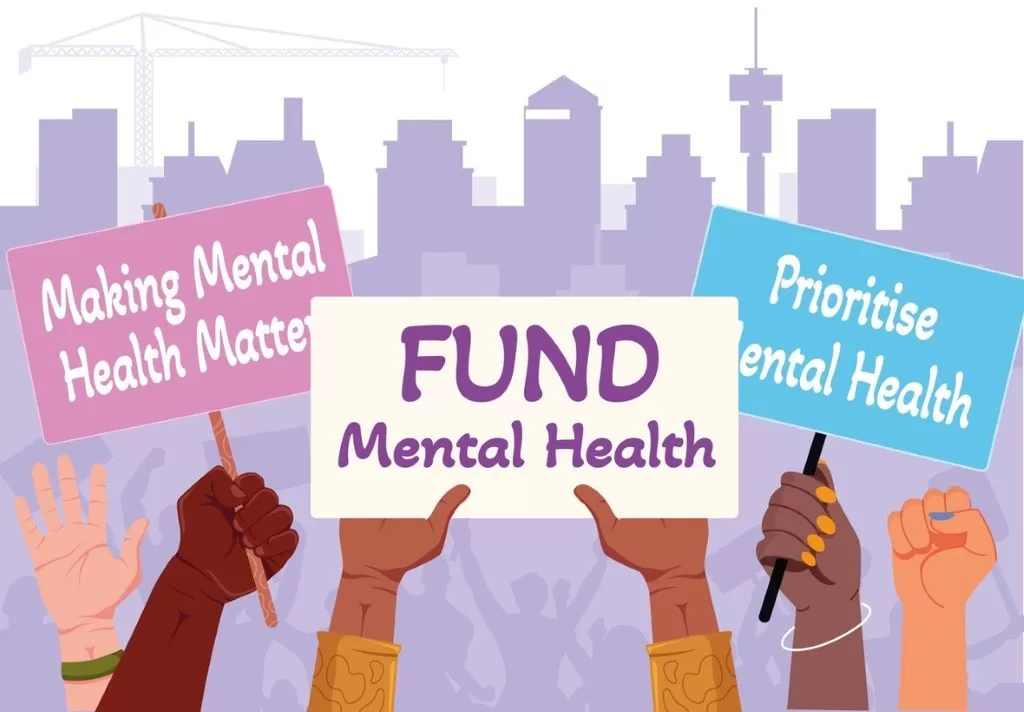Demanding Change: SADAG’s Appeal for Better Mental Health Funding & Resources
Many South Africans are grappling with Mental Health issues due to the environment we live in. Thirty years later since its inception, the South African Depression and Anxiety Group (SADAG) is seen as a safe space for South Africans where a caring volunteer telephone counsellor is available to lend a supportive ear 24 hours a day , 7 days a week, 365 days a year offering free crisis intervention, telephone counselling and linking to support and resources nationwide. In review of the calls received in the past three months, SADAG receive an average of 2500 to 3000 calls per a day. Callers share a range of concerns such as Depression, Stress, Suicidal Ideation, Trauma, Anxiety, Relationship Problems, Abuse and Substance Abuse. Our assistance remain free, which is particularly important as many of those that reach out to us find it difficult to receive specialised psychiatric care as they have limited finances or experience difficulty accessing resources.
As we review accessibility, less than 5% of the national health budget is allocated to Mental Health, which falls short to make sufficient available treatment to assist the 1 in 3 people that will experience a Mental Illness at some point in their lifetime. From this, only 1 in 10 people with a Mental Illness has access to treatment, which means that 9 out 10 people with a mental illness do not have access to mental healthcare. Dr Colinda Linda, SADAG Board Chairperson and Specialist Psychologist, highlights, “20 million of the 60 million South Africans struggling with Mental Health issues have little to no access to Mental Healthcare. There is only 1 psychiatrist per 100,000 people and 3 psychologists per 100,000 people. The lack of specialists can be in part due to immigration and in part due to lack of community service posts available. This can be seen amongst GPs as well, another important part of the resources who could be helping patients that are unable to access a psychiatrist. There is an urgent call for help from the South African Mental Health NGO’s, and we implore the government to urgently allocate resources specifically for the mental crisis we are experiencing.”

The latest Annual Mental State of the World Report 2022 from Sapien Labs which was published in March 2023, and part of the Global Mind Project included 407,959 responses from 64 countries in nine languages. The survey measured the mental well-being using a scale on a spectrum from “distressed” to “thriving”. In between these two poles were struggling, enduring, managing, and succeeding. The study questionnaire considered five functional dimensions: drive and motivation, mood and outlook, cognition and social self, and the mind-body connection. The researchers also recorded information on demographics, lifestyle factors, traumas, and adversities to evaluate the key drivers of risks. According to this report, South Africa ranks and remains as one of the worst countries regarding Mental Health together with the United Kingdom and Brazil. South Africa thus shows the greatest proportion of respondents who are Distressed or Struggling. The purpose of this report is to provide policymakers a basis for the more effective management of population mental well-being through evidence-based social policy and interventions. In another report by IPSOS that was published in October 2023, it was found that 71% of South Africans participants say stress has impacted their life multiple times in the last year to the point that they could not cope with things, and 50% say they have felt stressed to the point that they could not go to work for a period.
“Obviously there are many reasons why people are stressed or distressed ranging from the political situation, crime, joblessness, to deteriorating financial status, also resulting in a deterioration in social norms and structure, a general negativity and pessimism about the future. The most distressing point for me is that we constantly get these statistics but the government just kind of turns a blind eye to these facts. Less is spent on Mental Health (time, attention, services, funding) than other key illnesses. This in turn places a greater burden on current Mental Healthcare providers who are totally under resourced and unable to cope,” says SADAG Board Member and Specialist Psychiatrist, Dr Frans Korb.
SADAG appeals for Mental Healthcare to be prioritised and for the allocation for more resources towards the sector. We advocate for various tiers to be introduced to the system to bridge the gap such as increased funding to NGOs that already offer support services, the introduction of empowering skilled community care workers with basic counselling skills, increasing community service opportunities for psychology and psychiatry students, and investing in community mental health projects that can help more people on the ground who need it the most. This would lessen the burden on an already heavily under resourced sector. “SADAG has been running the Counselling Container projects for over eleven years, and we have identified that it is cost efficient and an effective method to provide a service that is very helpful to communities that have little to no Mental Healthcare. In addition, it helps lower unemployment as it creates jobs within impoverished communities. However, funding is needed to open more of these centres around the country”, says Fatima Seedat, SADAG Development Manager. There is a great need for civil society to work together with various governmental departments to overcome these issues.
There is no health without Mental Health.





























